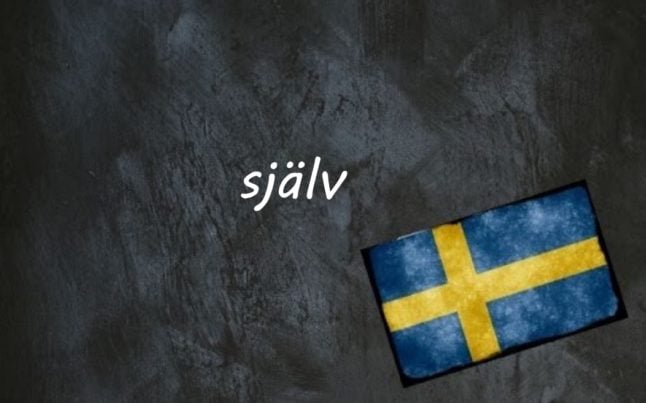You may, however, hear it in conversation with Swedes, or to be more accurate, you may hear it when the conversation stalls.
It is made up of several words, so let’s break it down.
First: jodå, which is often pronounced jorå. Jodå (literally “yes then”) is a more emphatic version of jo, which like ja means “yes” but is often used as a more insistent yes or when answering negated questions in the affirmative. We’ve explained the word jo in this article.
Så means “so”.
And finally, att means “that”. The e at the end of joråsåatte is a result of dragging out the word because you don’t know what to say next, much like “er” or “um”. Because joråsåatte is primarily used in spoken Swedish, you may see several spelling variations in writing.
It’s usually used as a filler word, a nonsense word you say when you’ve run out of all other words, when the silence is too much to bear, even for a non-talkative Swede. A similar word in English might be “anyway” or “so yeah”.
It’s handy when you’re trying to get out of a conversation. Throw in a joråsåatte just before you make your excuse to leave. Don’t forget to shuffle your feet awkwardly and pretend to look at your watch or phone like you suddenly remembered an important appointment.
Another way to use it is at the end of a vaguely entertaining or shocking story, just after the punchline or in place of the punchline when you realise the story was far more entertaining and shocking in your head compared to how it came out. Kind of like making a drum roll sound.
Example sentences:
Joråsåatte… jag borde nog gå och hämta barnen på förskolan nu.
Anyway… I should probably go and pick up the children from preschool.
… sa flickan. Joråsåatte…
… that’s what she said. Er, anyway…
Villa, Volvo, Vovve: The Local’s Word Guide to Swedish Life, written by The Local’s journalists, is now available to order. Head to lysforlag.com/vvv to read more about it. It is also possible to buy your copy from Amazon US, Amazon UK, Bokus or Adlibris.



 Please whitelist us to continue reading.
Please whitelist us to continue reading.
Member comments